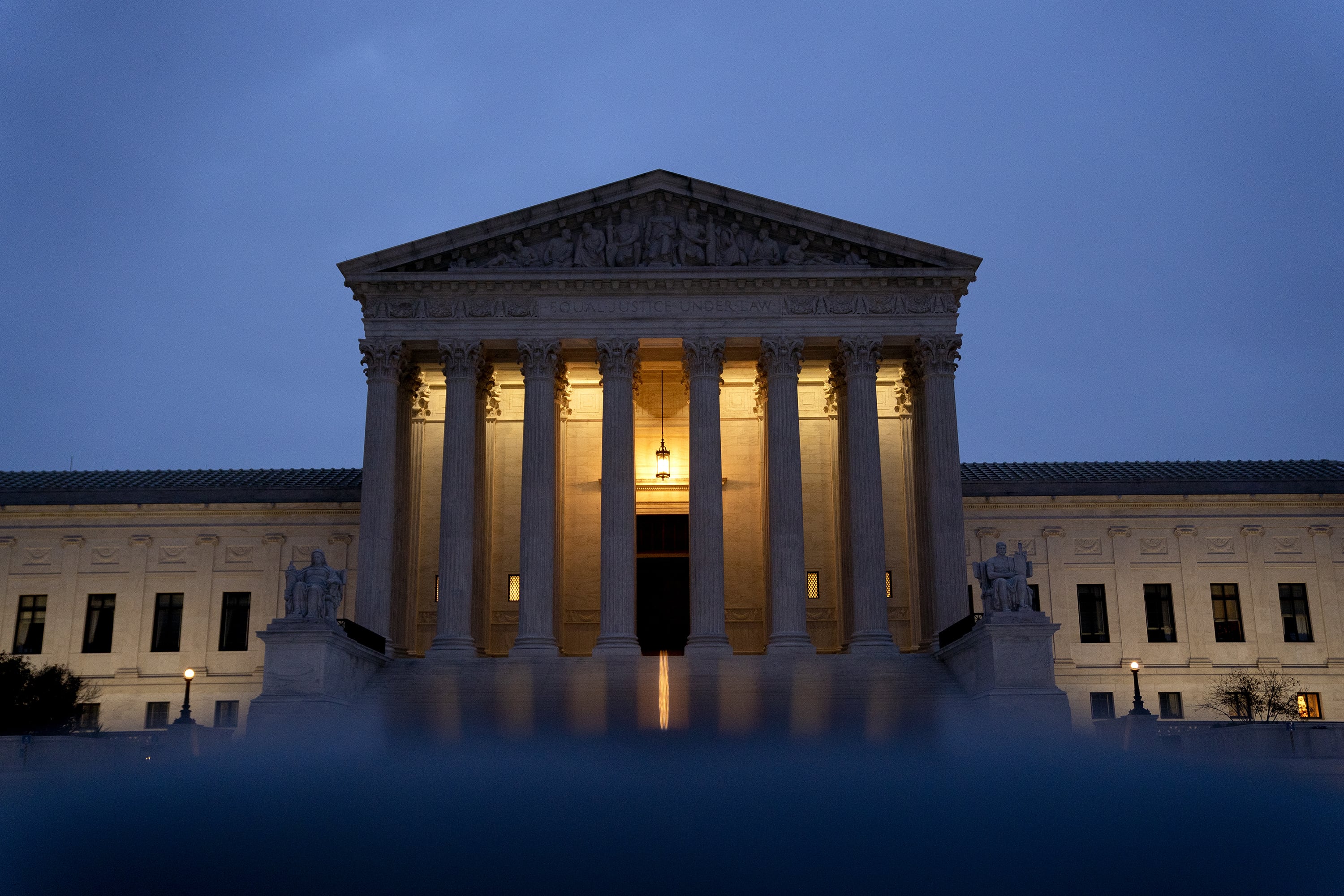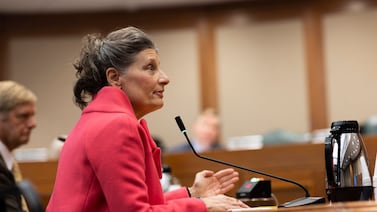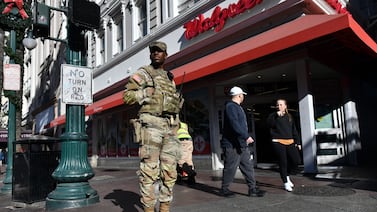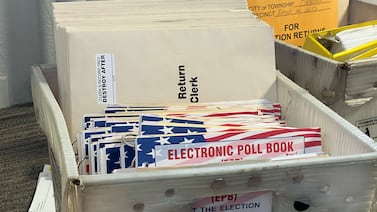Votebeat is a nonprofit news organization reporting on voting access and election administration across the U.S.
This news analysis was originally distributed in Votebeat’s free weekly newsletter. Sign up to get future editions, including the latest reporting from Votebeat bureaus and curated news from other publications, delivered to your inbox every Saturday.
Election officials and voters preparing for next year’s midterm elections face disruptions on multiple fronts, including President Donald Trump’s efforts to influence voting procedures, a rare midcycle redistricting push in several state legislatures, and activity in the U.S. Supreme Court, whose election-related docket could have a big impact.
This month, the justices heard arguments in two cases with potentially profound implications for elections and redistricting — and at least two more significant election-related cases are seeking a spot on the court’s docket.
The highest-profile case, Louisiana v. Callais, was before the justices this week for a rare reargument. It’s a complex and long-running dispute over political maps in Louisiana, and voting rights advocates have warned it could allow the conservative majority to erode or strike down Section 2 of the Voting Rights Act, further limiting the use of race as a factor in redistricting as a remedy for past discrimination.
Most analyses have found striking down Section 2 would give Republicans a path to solidifying control of the U.S. House.
How the justices will rule remains unpredictable — even the timing of the ruling could affect whether states can redraw maps before the 2026 midterm elections if they have to. After oral arguments Wednesday, at least some experts said some of the justices’ questions suggested that Section 2 of the Voting Rights Act is in trouble.
Federal law allows lawmakers to use race-based criteria in drawing political maps to remedy past patterns of discrimination against minority groups and to ensure that their political power isn’t unfairly diluted. Some conservative justices have long favored prohibiting this practice, but as recently as two years ago, a majority of these justices reaffirmed the law in another case, Allen v. Milligan.
Justice Brett Kavanaugh, viewed as a key vote in the Louisiana case, voted with the majority in the Allen case, but signaled then that he was open to considering in the future whether race-based redistricting should be subject to a time limit. He picked up on that thread during the argument Wednesday, saying “race-based remedies are permissible for a period of time, sometimes for a long period of time,” but should not be indefinite.
Other pending cases could also reshape election rules. Earlier this month, the Supreme Court heard arguments in an Illinois case involving candidates’ legal right to challenge election laws in court. Civil rights groups, including the League of Women Voters and the American Civil Liberties Union, urged the justices to find that candidates do have the standing to sue. Such a ruling that could open the door to more election lawsuits.
In a case out of North Dakota, Native American plaintiffs sued over state legislative maps they said diluted Native American voting power, and a federal court ruled in their favor. But the state appealed, and the 8th U.S. Circuit Court of Appeals ruled that private citizens cannot file lawsuits under Section 2 of the federal Voting Rights Act, going against decades of precedent. In July, the Supreme Court stayed the 8th Circuit decision, and lawyers for the tribes have petitioned the court to take the case.
A case from Mississippi concerns whether to reinstate a five-day grace period for mail ballots arriving after Election Day that a federal appeals court struck down. In an executive order on elections issued in March, Trump cited that decision and told the U.S. Justice Department to enforce a ballot receipt deadline of Election Day. He also ordered the U.S. Election Assistance Commission to withhold federal funds from states that did not comply with it. A group of states challenged provisions of the executive order and a federal judge blocked that provision in June, but the Justice Department is appealing.
The Supreme Court’s docket is the ultimate destination for more and more of these election law cases, but even the justices appear to be wrestling with how hard it is to settle some questions once and for all.
“A couple of years ago when we decided Milligan, the party there, the state there, made several arguments that we specifically rejected,” Justice Elena Kagan said to Louisiana’s solicitor general, Ben Aguiñaga, during oral arguments Wednesday. “And in the answers that you just gave to me, it seems to me that you repeated each and every one of those arguments that we rejected.”
Just two years after the decision in Allen v. Milligan, the justices are again grappling with similar questions. This time the answers may be different, and they may end up reshaping how Americans vote.
Carrie Levine is Votebeat’s editor-in-chief and is based in Washington, D.C. Contact Carrie at clevine@votebeat.org.





